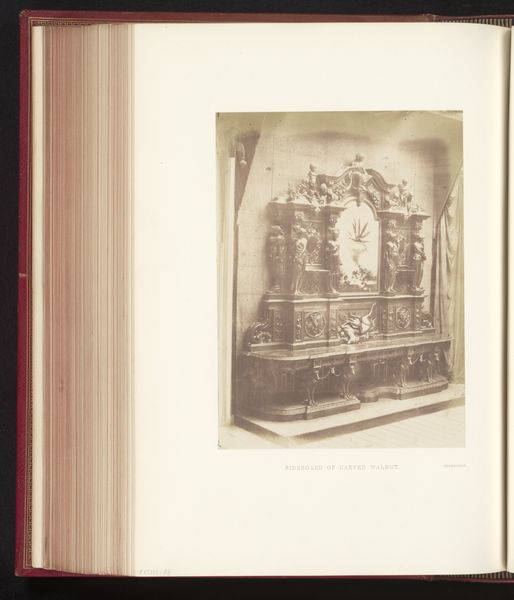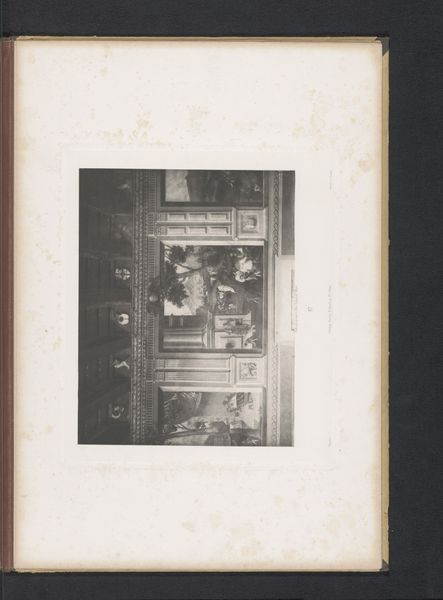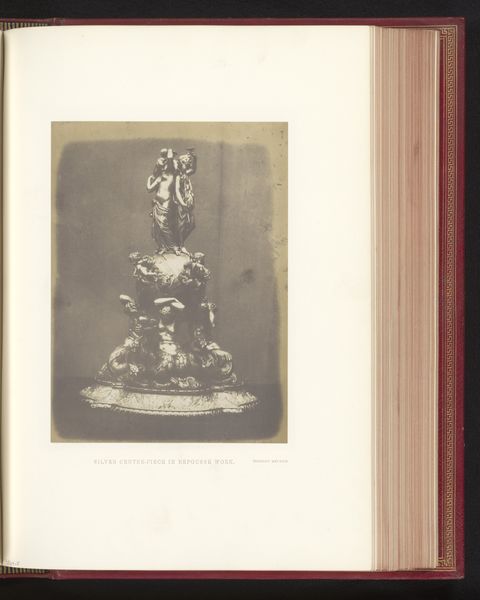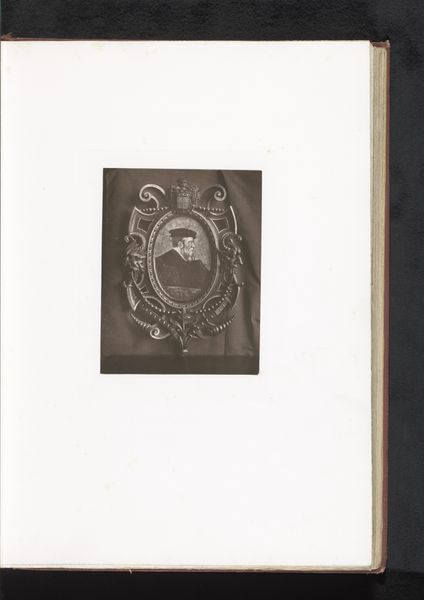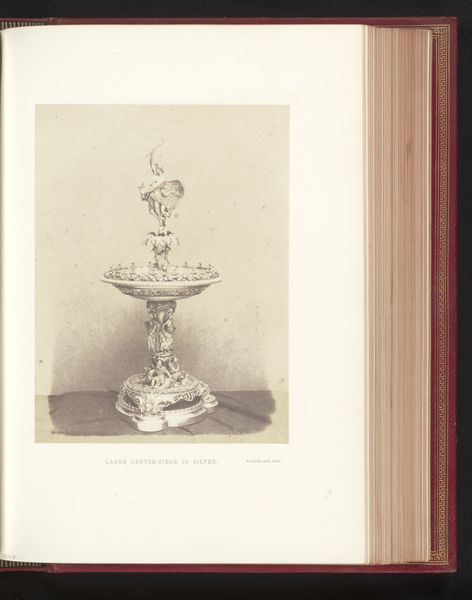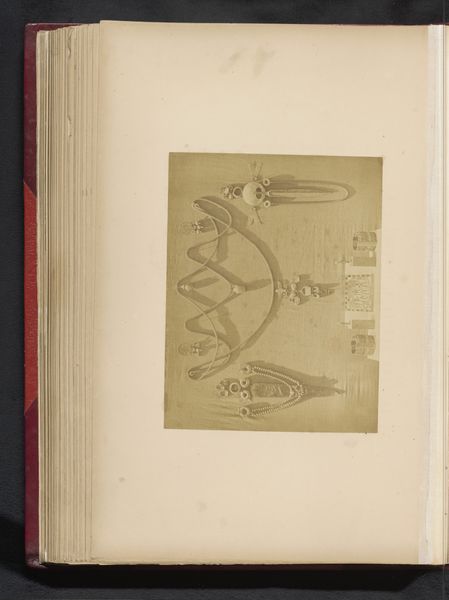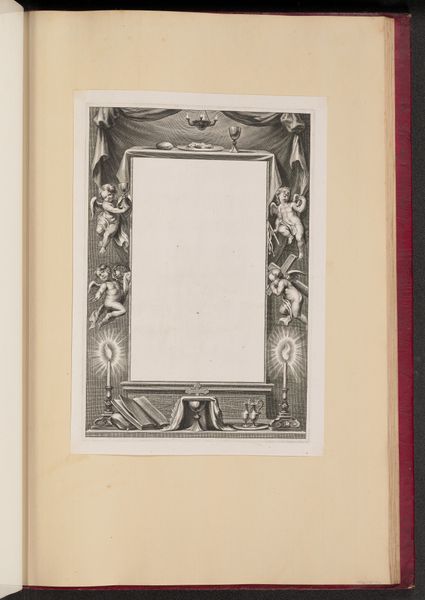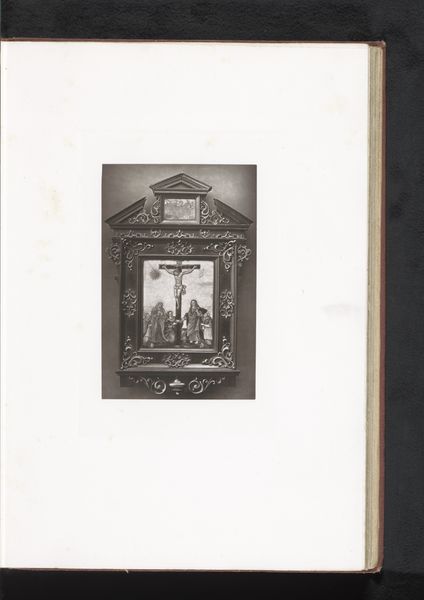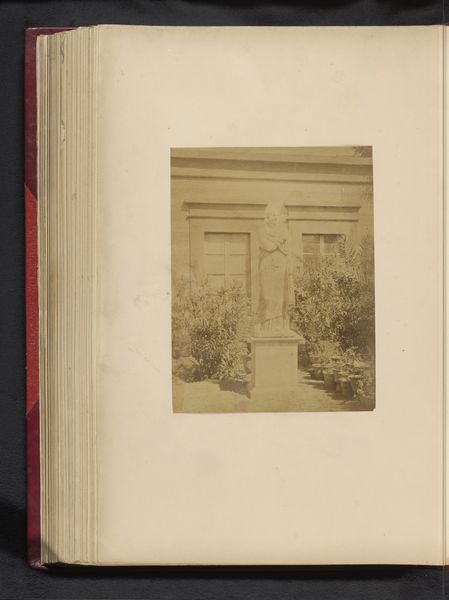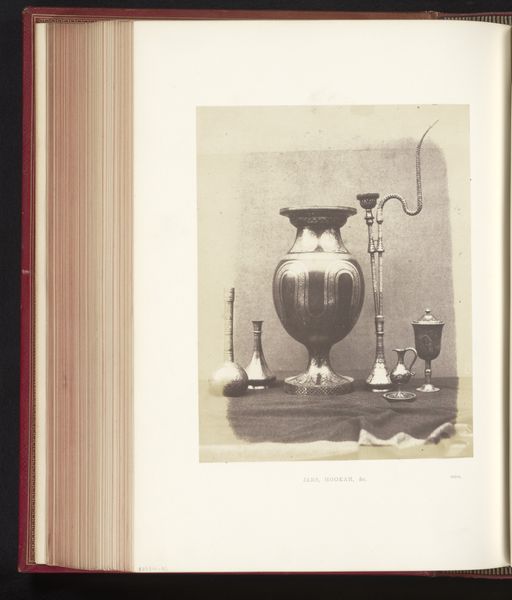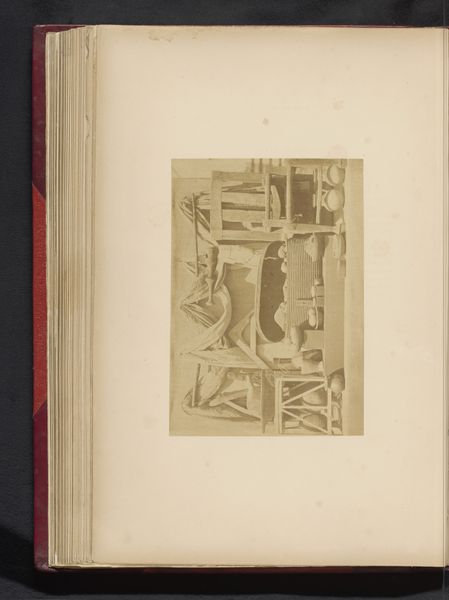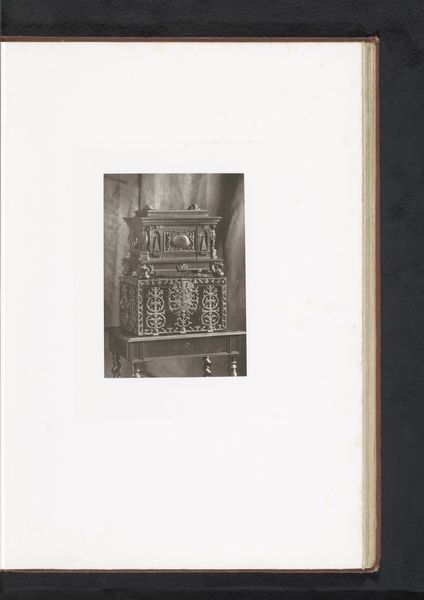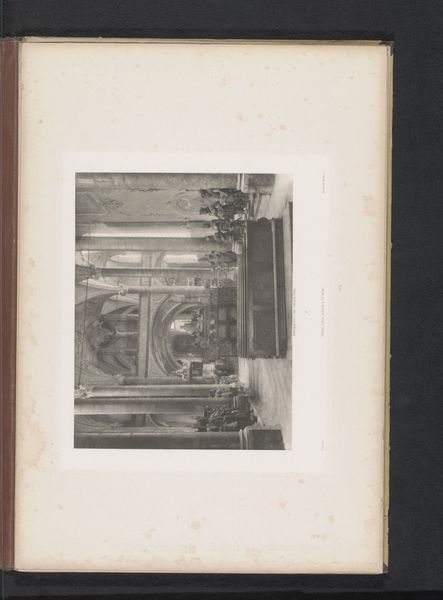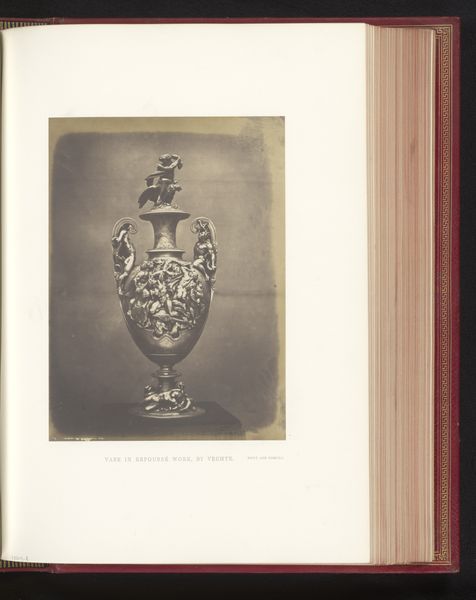
Tafel, schilderijlijsten en andere producten gemaakt van Guttapercha op de Great Exhibition of the Works of Industry of All Nations van 1851 in Londen 1851
0:00
0:00
daguerreotype, photography
#
still-life-photography
#
appropriation
#
daguerreotype
#
photography
Dimensions: height 203 mm, width 156 mm
Copyright: Rijks Museum: Open Domain
This photograph captures a display of Gutta-percha products at the Great Exhibition of 1851 in London, showcasing items like picture frames and decorative objects. The elaborate frames adorning the wall are striking. Frames historically symbolize boundaries, encapsulating and elevating what they hold, not only in art but also in memory and identity. The ornate nature of these frames, reminiscent of classical motifs, ties them to a tradition stretching back to antiquity. Consider the reappearance of such framing in later movements, such as the Pre-Raphaelites, who used elaborate frames to enhance the emotional impact of their artwork, drawing viewers deeper into the scene. This echoes a primal desire to organize and contain experience, a psychological attempt to give structure to the chaotic flow of life. The cyclical nature of these symbols reveals how cultural memory works—not in a linear progression, but as a continuous return and reinterpretation, each era imbuing these forms with new significance while never fully escaping their past.
Comments
No comments
Be the first to comment and join the conversation on the ultimate creative platform.
